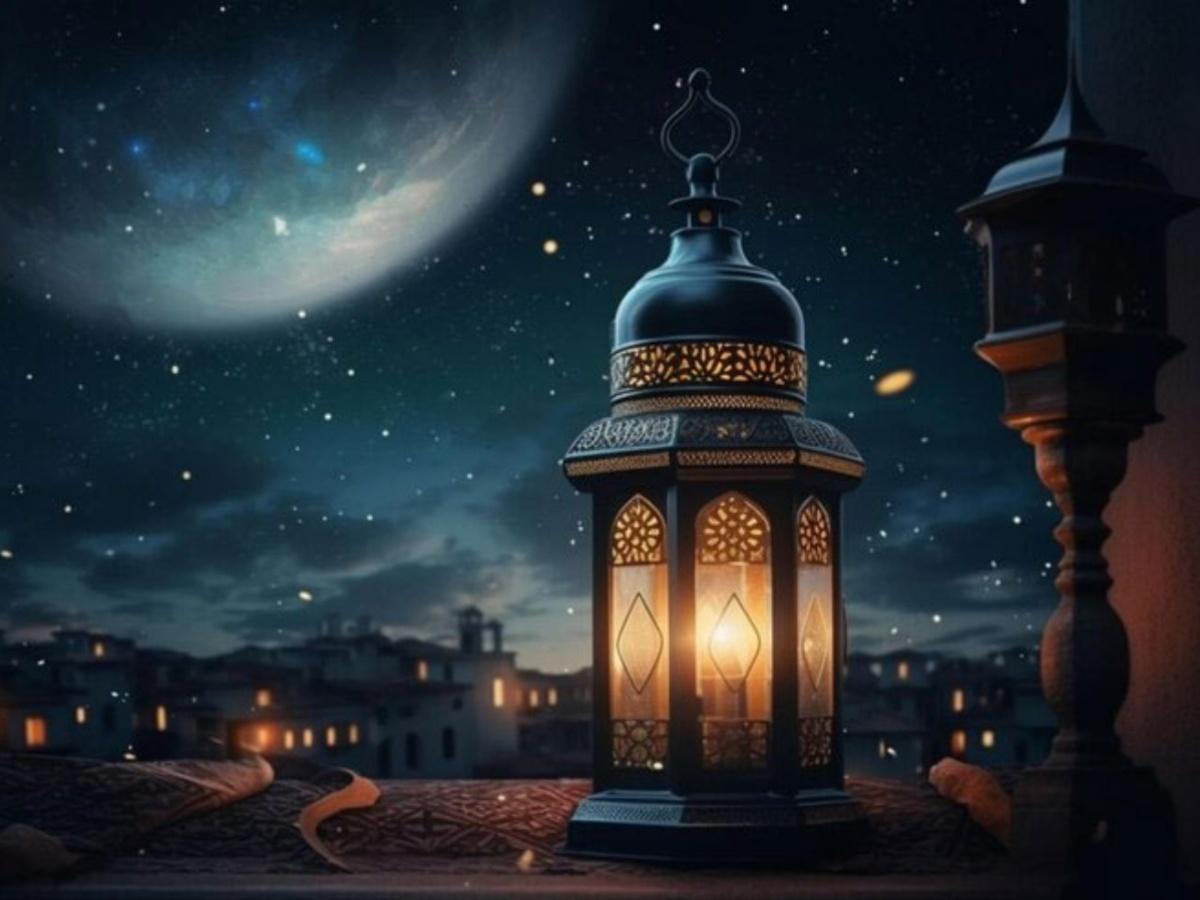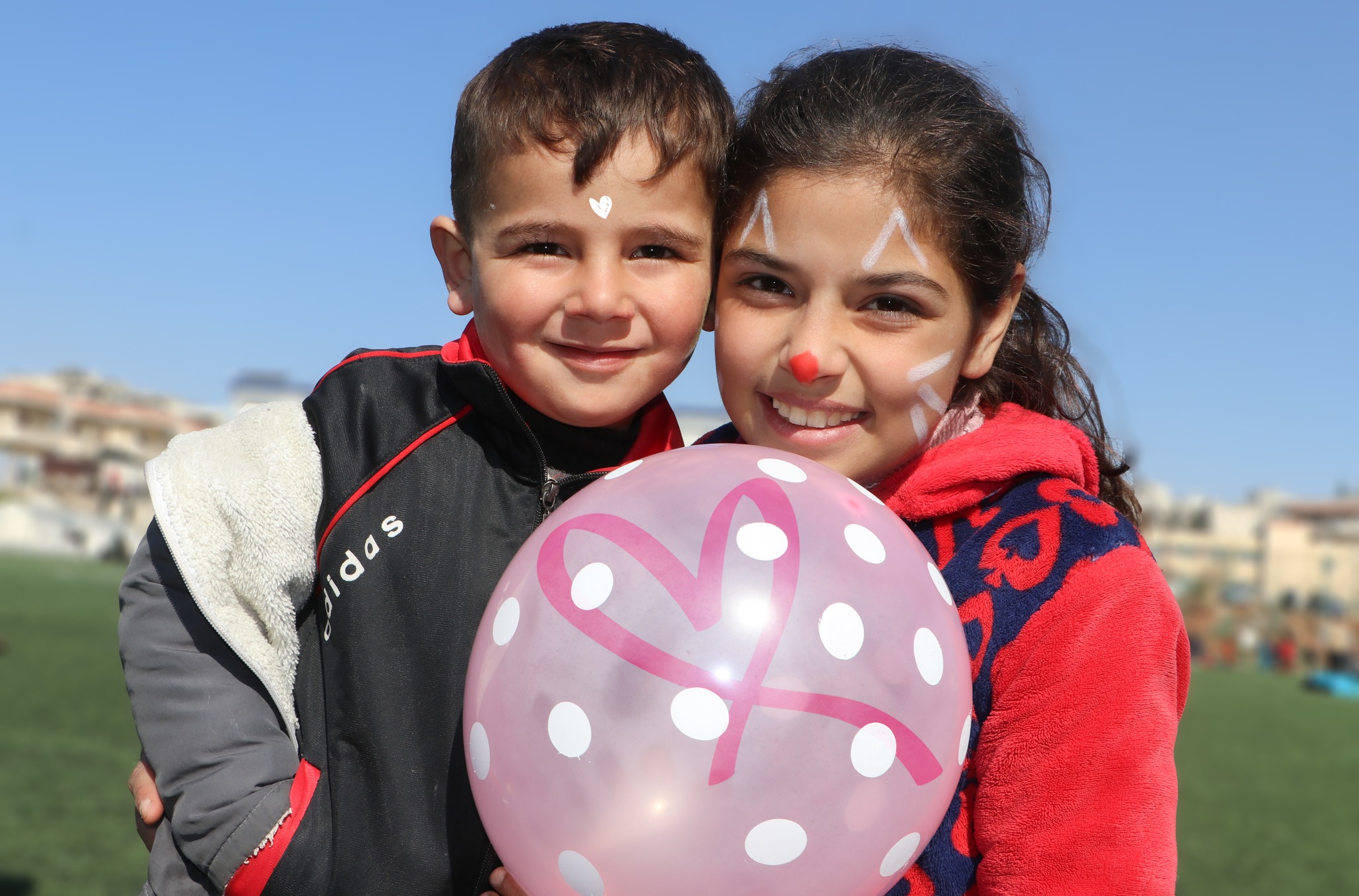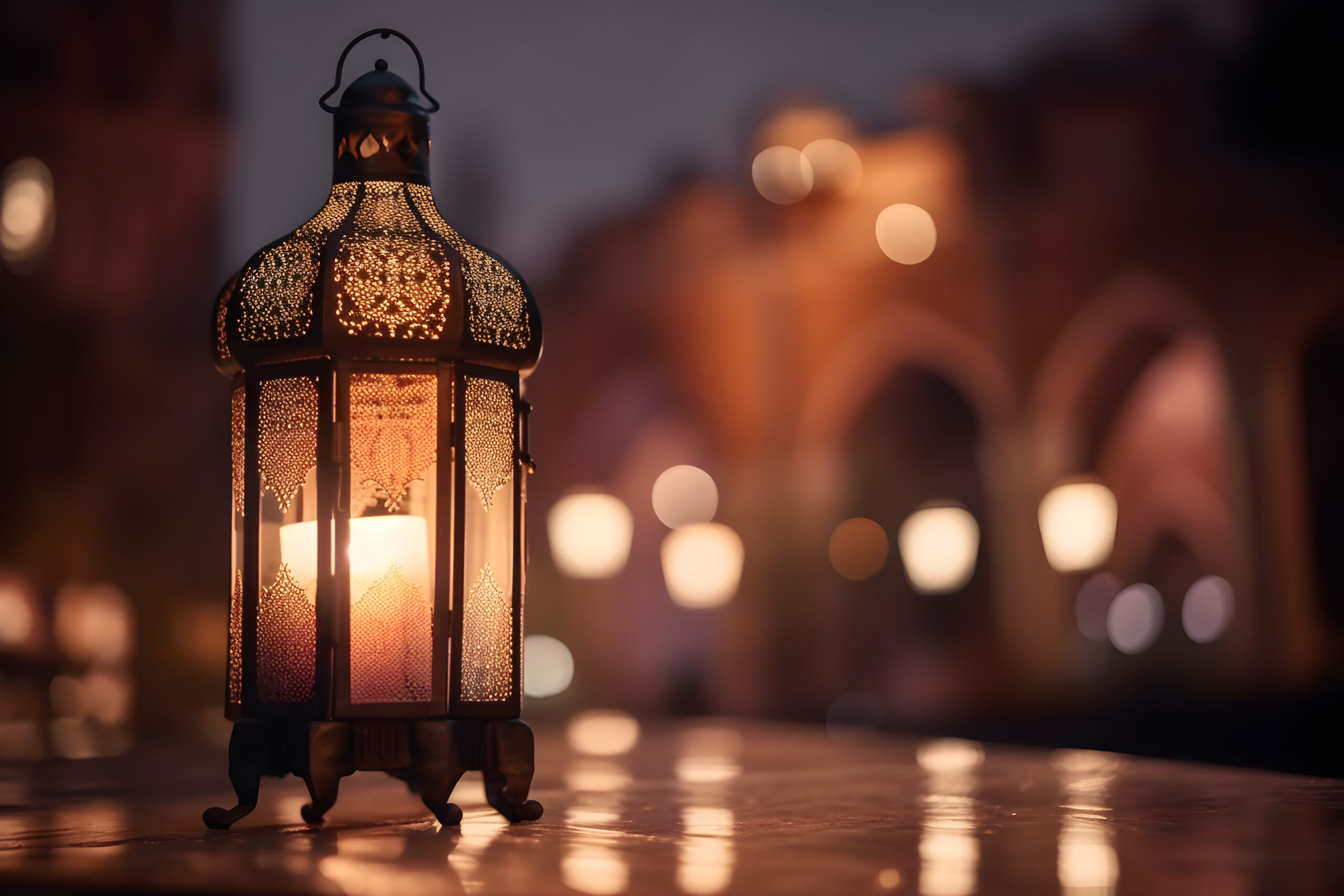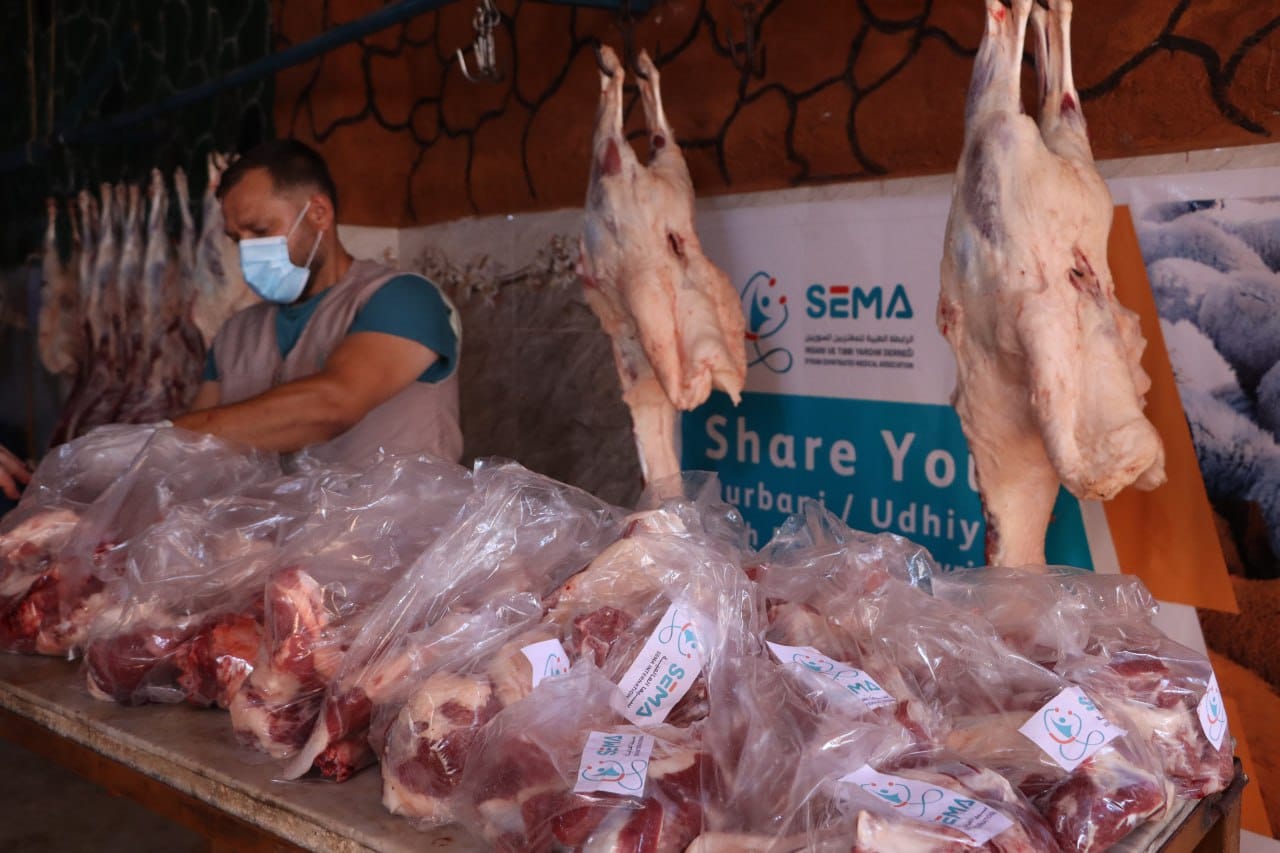On this night, Muslims increase their acts of worship in order to please Allah the Almighty and acquire multiple rewards.
This article discusses the significance of Laylat al-Qadr and how best we can benefit from it.
The significance of the last 10 days of Ramadan
The last 10 days of Ramadan’s significance stem from being the days when the Qur’an was revealed to the Prophet (PBUH).
That day when the Qur’an was revealed to the Prophet (PBUH) through the angel Gabriel (Jibrīl) is called Laylat al-Qadr.
The exact date of this night was not revealed to encourage Muslims to increase their acts of worship in the last 10 days of Ramadan so as to accrue the benefits of Laylat al-Qadr (The Night of Decree).
This night is the most prominent night of the year, and it is equivalent to 1,000 months in terms of the rewards that Muslims can get from performing good deeds and acts of worship on this night.

Increase in spiritual activities
On the last 10 days of Ramadan, Muslims are urged to increase their acts of worship to observe Laylat al-Qadr and accrue its numerous blessings and rewards.
In addition, such acts of worship will increase the spiritual connection between the believers and their Creator, the Almighty Allah (SWT).
Some of the spiritual activities that Muslims can do include the following:
- Praying Isha and Fajr prayers in congregation.
- Praying the Qiyam prayer in congregation.
- Increasing our remembrance of Allah (SWT) through performing dhikr after the prayers and throughout the day.
- Increasing our supplications and duaa’.
- Giving to charity and being generous to the needy.
- Reciting the Qur’an many times throughout these blessed days.
- Performing I’tikaf in the mosque.
Recitation and understanding of the Qur’an
Qur’an recitation is a source of communication with Allah (SWT).
It is even more during the last 10 days of Ramadan because it was specially revealed to the Prophet (PBUH) on Laylat al-Qadr, which falls on one of these days.
Qur’an recitation is considered to be one of the most crucial acts of worship because it helps cleanse the heart.
It is also throughout Qur’an that Allah (SWT), teaches us the values and principles of Islam.
Allah (SWT) said: “[This is] a blessed Book which We have revealed to you, [O Muhammad], that they might reflect upon its verses and that those of understanding would be reminded,” (Sad, 29).
The Messenger of Allah, (PBUH), said, “Whoever recites the Qur’an and acts according to what is in it, his parents will be crowned on the Day of Resurrection with a light brighter than the light of the sun in your worldly houses, were it among you. What do you think of one who acts upon this?,” (Hasan, Sunan Abī Dāwūd).
Giving charity and helping others
Giving charity and helping others is one of the most rewarded acts of worship on the last 10 days of Ramadan.
By giving charitable donations to those in need, we sympathize with their pain and acknowledge their needs.
Ibn ‘Abbas informed Ibn az-Zubayr, “I heard the Prophet, may Allah bless him and grant him peace, say, ‘He is not a believer whose stomach is filled while his neighbor goes hungry,” (Sahih -al-Albani).
In addition, we gain the multiple rewards pledged by Allah (SWT) on the last days of Ramadan.
Most importantly, giving iftar to help the poor break their fast is a form of charity that results in getting the same rewards as them.
I’tikaf and seeking forgiveness and repentance
I’tikaf is one of the most important acts of worship during the last 10 days of Ramadan.
I’tikaf in Arabic means isolation of oneself or adherence to something.
During those blessed days, Muslims perform i’tikaf by spending those 10 nights in the mosque and isolating themselves from all worldly distractions.
They also dedicate themselves to worshiping Allah (SWT) through many forms of worship including:
- Fasting.
- Qur’an recitation.
- Remembering Allah the Almighty (dhikr).
- Performing duaa’ (supplication).
- I’tikaf helps Muslims in seeking Allah’s (SWT) forgiveness.
Performing Tahajjud prayer and night prayers
The Tahajjud prayer is usually performed after Isha prayer and before the Fajr prayer.
It is one of the worship acts that are mostly rewarded during the last days of Ramadan.
This important prayer is performed during the last third of the night, at which time Allah (SWT) descends to the lowest heaven to listen to the prayers and needs of worshippers.
“And from [part of] the night, pray with it as additional [worship] for you; it is expected that your Lord will resurrect you to a praised station,” (Al-‘Isra’:79).
Making duaa’ and supplication
Supplicating and performing duaa’ is a key act of worship for seeking guidance and forgiveness from Allah the Almighty.
It is also a key act of worship that Muslims mostly perform in order to connect with Allah (SWT).
Supplicating during the last 10 days of Ramadan helps us get our wishes and needs from Allah (SWT) because it is mostly to get accepted during this blessed timing.
Spending time in reflection and contemplation
Spending time in reflection and contemplation during the 10 days of Ramadan is key to purifying the heart, which is an essential condition for boosting sincerity in performing the acts of worship.
Reflecting upon and genuinely contemplating our lives during those days paves the way for us to think about the purpose of our lives. That is, to worship Allah (SWT) and dedicate our lives to being His successors on earth in order to build it and rule it by His teachings.
Laylat al-Qadr (The Night of Decree)
Laylat al-Qadr is one of the most sacred nights in the Islamic calendar.
This holy night takes place in the last 10 days of Ramadan, and its significance is based on it being the night on which the Qur’an was revealed to the Messenger of Allah (PBUH).

How can you know if it is Laylatul Qadr?
There are particular signs of Laylat al-Qadr, it is commonly believed to be on the 27th night of Ramadan, although the most accurate opinion is that it is not specified to a particular night but rather one of the odd nights in the last 10 nights of Ramadan.
In addition, it is also said that the night of Laylat al-Qadr is moderate, neither too hot nor too cold, and that the sun on its morning appears white without any rays.
What is the importance of Laylat al-Qadr?
Laylat al-Qadr is a great night in Islam and is one of the last 10 nights of the blessed month of Ramadan.
It is mentioned in the Holy Qur’an that it is better than a 1000 months.
So, for example, if you donated 10 USD on this night, it is as if you have donated for a thousand years, or the equivalent of 300.000 USD. Therefore, you will reap the immense rewards of your small donation on this blessed night.
On the importance of Laylat al-Qadr, Allah the Almighty says:
“We sent it down on the Night of Destiny(1). But how would you know what the Night of Destiny is? (2). The Night of Destiny is better than a thousand months. (3)” (al-Qadr).
One of the virtues of the Night of Decree is that it is the night of the revelation of the Holy Qur’an.
Muslims see this night as an opportunity to complete reading the Qur’an and reflect on its great meanings.
It is also a night of forgiveness and mercy, and therefore Allah the Almighty showers the believers with His mercy and forgiveness as they supplicate (make duaa’) and beseech Him.
Many people believe that supplications made on this night are especially accepted, and therefore they strive to draw closer to Allah through worship, supplication, glorification, praise, and exaltation.
Read More:
Why is the 27th night considered to be Laylat al-Qadr?
The 27th night of Ramadan is considered by many Muslims to be Laylat al-Qadr based on a narration attributed to the Prophet Muhammad (PBUH).
Nevertheless, it is substantial to note that the exact night of Laylat al-Qadr is not known with certainty and can fall on any odd night during the last ten days of Ramadan.
The narration attributed to the Prophet Muhammad (PBUH) states that he was informed by Allah (SWT) that Laylat al-Qadr falls on an odd-numbered night during the last ten days of Ramadan.
The narration then specifically mentions the 27th night as a possibility, but it does not exclude the other odd nights.
Donate now to help refugees fast during Ramadan
The Syrian Medical Association for Syrian Expatriates (SEMA) works to ease the lives of Syrian refugees better by providing them with the medical care they need during the month of Ramadan.
Thus, helping them to focus on worshiping Allah (SWT) and focusing on performing good deeds during this month.
Therefore, your donations will help us realize our goal of offering healthcare services by equipping the latest medical facilities with the equipment, staff, and tools necessary to help underprivileged refugee communities.
FAQ
What happened in the last 10 nights of Ramadan?
In the last 10 nights of Ramadan, the Qur’an was first revealed to the Prophet (PBUH) through the angel Gabriel (Jibrīl).
What did the Prophet (PBUH) do during the last 10 days of Ramadan?
During the last 10 days of Ramadan, the Prophet (PBUH) would perform I’tikaf, where he would stay in the mosque and isolate himself to worship Allah (SWT).
Are the last days of Ramadan the hardest?
The last days of Ramadan are considered to be the hardest because they are the most significant days of the year.
This is because of the multiple rewards Muslims can get by dedicating themselves to worshiping Allah (SWT) on those days.
How do you know if it is Laylat al-Qadr?
The exact night of Laylat al-Qadr is not known with certainty, but it is believed to fall on one of the odd nights during the last 10 days of Ramadan.
Is the reward of sadaqah multiplied on Laylat al-Qadr?
Yes, the reward of sadaqah multiplied on Laylat al-Qadr.
What is the most beloved deed to Allah on Laylat al-Qadr?
One of the most beloved deeds to Allah on Laylat al-Qadr is the recitation of the Holy Qur’an.





